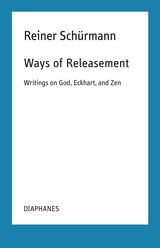11 start with L start with L

The French psychoanalyst Jacques Lacan (1901–1981) is a uniquely complex writer and the originator of an especially unsettling view of the human subject. But the singularity of Lacan’s achievement has been understated by many of his critics. Often he is seen merely as a figure famous for being famous—an essential reference point in structuralist and poststructuralist debate—rather than as a theorist whose writings demand and reward detailed scrutiny.
Malcolm Bowie traces the development of Lacan’s ideas over the fifty-year span of his writing and teaching career. The primary focus is on the fascinating mutations in Lacan’s interpretation of Freud. Bowie reinserts the celebrated slogans—“The unconscious is the discourse of the Other,” “The unconscious is structured like a language,” and so forth—into the history of Lacan’s thinking, and pinpoints the paradoxes and anomalies that mark his account of human sexuality. This book provides a firm basis for the critical evaluation of Lacan’s ideas and the rhetoric in which they are embedded; it is based on a close reading of Lacan’s original texts but presupposes no knowledge of French in the reader.
Although Bowie is sharply critical of Lacan on several major analytic questions, he argues that Lacan is the only psychoanalyst after Freud whose intellectual achievement is seriously comparable to Freud’s own. Lacan provides the ideal starting point for any exploration of the work of this formidable thinker.
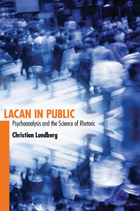
Lacan in Public argues that Lacan’s contributions to the theory of rhetoric are substantial and revolutionary and that rhetoric is, in fact, the central concern of Lacan’s entire body of work.
Lacan’s conception of rhetoric, Christian Lundberg argues in Lacan in Public, upsets and extends the received wisdom of American rhetorical studies—that rhetoric is a science, rather than an art; that rhetoric is predicated not on the reciprocal exchange of meanings, but rather on the impossibility of such an exchange; and that rhetoric never achieves a correspondence with the real-world circumstances it attempts to describe.
As Lundberg shows, Lacan’s work speaks directly to conversations at the center of current rhetorical scholarship, including debates regarding the nature of the public and public discourses, the materiality of rhetoric and agency, and the contours of a theory of persuasion.
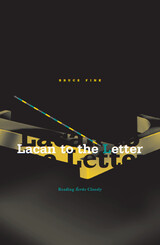
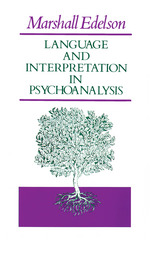
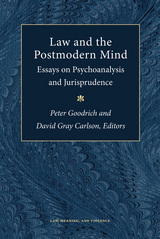
While psychoanalytic interpretations of law are by no means a novelty within common law jurisprudence, the extent and possibilities of the terrain opened up by psychoanalysis have yet to be extensively addressed. The intentional subject and "reasonable man" of law are disassembled in psychoanalysis to reveal a chaotic and irrational libidinal subject, a sexual being, a body and its drives. The focus of the present collection of essays is upon desire as an inner law, upon love as an interior idiom of legality, and represents a signficant and at times surprising development of the psychoanalytic analysis of legality.
These essays should appeal to scholars in law and in psychology.
The contributors are Drucilla Cornell, Jacques Derrida, Peter Goodrich, Pierre Legendre, Alain Pottage, Michel Rosenfeld, Renata Salecl, Jeanne L. Schroeder, Anton Schutz, Henry Staten, and Slavoj Zizek.
David Gray Carlson is Professor of Law, Benjamin Cardozo School of Law, Yeshiva University. Peter Goodrich is Professor of Law, University of London and University of California, Los Angeles.

This is the first full-scale intellectual biography in English of Erich Fromm, perhaps the most widely read psychoanalyst after Freud, whose contributions to clinical and social psychology and the history of the psychoanalytic movement have long been underrated. Though considered a pedant, a popularizer--Escape from Freedom, The Sane Society, and The Art of Loving, among others, were best-sellers -and an "outsider" in many psychoanalytic circles, Fromm played a historic role in the development of the discipline. As a member of Freud's "loyal opposition" with strong leanings toward the "dissident fringe;' he helped effect the transfer of productive ideas from the periphery to the mainstream of the psychoanalytic movement. Daniel Burston's meticulous elucidation of these ideas unravels the numerous strands--philosophical, literary, and social--that formed a part of Freud's own work and of Fromm's sympathetic, but not uncritical, reaction to Freudian orthodoxy. Despite his grounding in the tradition of Freud, contemporaries and former associates persistently misunderstood Fromm's work.
Insofar as he attempted to decipher the ideological subtexts to Freudian theory, analytically oriented theorists doing clinical or social research avoided his ideas. His Marxist leanings and his radically historical approach to human behavior made it all but impossible for mainstream academic psychologists to grasp his meaning, much less to grant it any validity. At the same time, his humanistic and ethical concerns struck many psychologists as grossly unscientific.
Practical and intellectual constraints have conspired to ensure that Fromm's impact has been peripheral at best. Burston's eloquent, evenhanded reassessment of Fromm's life and work cuts through the ideological and political underbrush to reveal his pivotal role as a theorist and a critic of modern psychoanalysis. It leads readers back to Freud, whose theoretical and clinical contributions Fromm refracted and extended, and on to controversies that remain a vital part of contemporary intellectual life.

When Sigmund Freud was nearly seventy and reflecting upon his life, he noted in Selbstdarstellung that during his youth he was consumed with a passion for knowledge that had more to do with human relationships than with natural objects. This collection of nearly eighty letters, written by Freud to his boyhood chum Eduard Silberstein, attests to that earlier, more whimsical life and to the existence of a deeply sensitive, observant youth.
The letters were composed over a period of ten years during which Freud and Silberstein attended secondary school and later the university in Vienna. They are the earliest primary source available on Freud's childhood and the only surviving documentation of his adolescence. Written in a witty, playful, and sometimes sanctimonious style, the letters bring to light a panoply of public and private interests: Freud's attitudes toward Bismarck and social democracy, his philosophical studies and professional leanings, as well as the innocent assault of first love, his earliest sexual stirrings, and his musings on the differences between men and women. What emerges in these letters is the special nature of this adolescent friendship, which was characterized by its own private mythology, code, and membership in an exclusive secret society invented by the two young correspondents. These letters sketch a unique portrait of Freud's youth. They will be a rich resource for scholars and all those interested in Sigmund Freud's formative years.
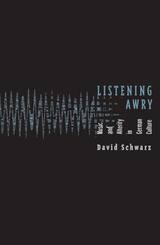
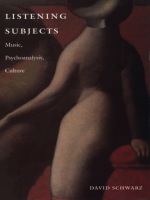
Schwarz applies the ideas of post-Lacanian psychoanalytic theorists Slavoj Zizek, Julia Kristeva, and Kaja Silverman to an analysis of diverse works. In a discussion of John Adams’s opera Nixon in China, he presents music listening as a fantasy of being enclosed in a second skin of enveloping sound. He looks at the song cycles of Franz Schubert as an examination and expression of epistemological doubts at the advent of modernism, and traverses fantasy "space" in his exploration of the white noise at the end of the Beatles’ "I Want You (She’s So Heavy)." Schwarz also considers the psychosexual undercurrent in Peter Gabriel’s "Intruder" and the textual and ideological structures of German Oi Musik. Concluding with a reading of two compositions by Diamanda Galás, he reveals how some performances can simultaneously produce terror and awe, abjection and rage, pleasure and displeasure. This multilayered study transcends other interventions in the field of musicology, particularly in its groundbreaking application of literary theory to popular and classical music.
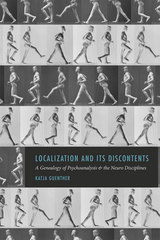
Given these differences, it is remarkable that both fields found resources for their development in the same tradition of late nineteenth-century German medicine: neuropsychiatry. In Localization and Its Discontents, Katja Guenther investigates the significance of this common history, drawing on extensive archival research in seven countries, institutional analysis, and close examination of the practical conditions of scientific and clinical work. Her remarkable accomplishment not only reframes the history of psychoanalysis and the neuro disciplines, but also offers us new ways of thinking about their future.
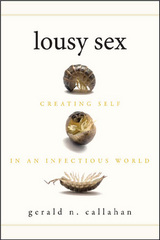
In his stories about where we came from and who we are, Callahan uses autobiographical episodes to illustrate his scientific points. Through stories about the sex lives of wood lice, the biological advantages of eating dirt, the question of immortality, the relationship between syphilis and the musical genius of Beethoven, and more, this book creates another way, a chimeric way, of seeing ourselves. The general reader with an interest in science will find Lousy Sex fascinating.
READERS
Browse our collection.
PUBLISHERS
See BiblioVault's publisher services.
STUDENT SERVICES
Files for college accessibility offices.
UChicago Accessibility Resources
home | accessibility | search | about | contact us
BiblioVault ® 2001 - 2024
The University of Chicago Press


